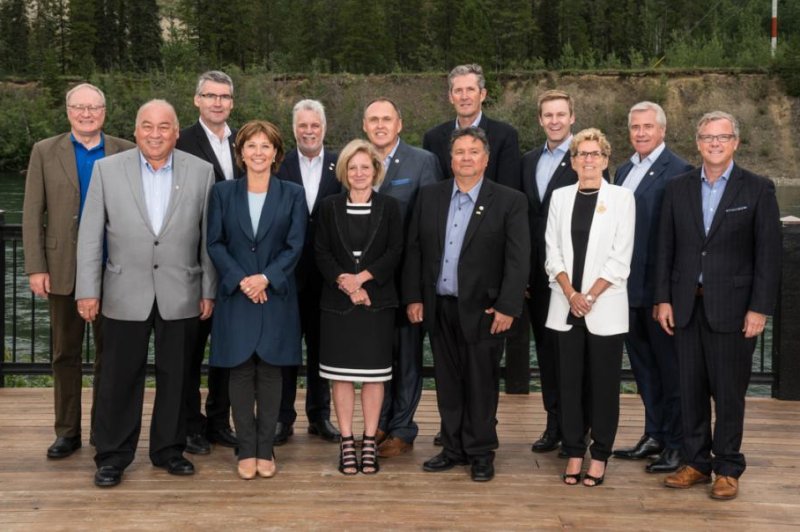Provincial leaders in Canada said during an annual summit that free trade with China was a path to economic diversity. Photo courtesy of the Canadian Council of the Federation Secretariat
July 20 (UPI) -- While stressing the importance of the U.S. trade relationship, Canadian premiers said they were anticipating a role in an eventual free-trade deal with China.
Canadian provincial leaders during their annual summer meeting outlined shared priorities for the year ahead. From an overheated Toronto-area housing market, to wildfires raging in British Columbia, premiers highlighted economic and trade issues during their annual summit in Yukon.
Canada relies on the United States as its top export destination for key commodities like oil and soft lumber, but has reached out to Asian economies in an effort to diversify its economy. Prime Minister Justin Trudeau in May issued a public call to weigh in on the possibilities of reaching a free-trade agreement with China.
"Premiers noted the importance of expanding trade as a key factor in growing Canada's economy and emphasized the need to promote Canada's trade opportunities in growing international markets such as China," a statement from the Yukon summit read.
Chinese President Xi Jinping last week called for the "launch negotiations on a free trade agreement at an early date."
China is the second largest economy in the world, behind the United States.
After raising its overnight rate to three quarters of a percent last week, the Central Bank of Canada said growth during the first quarter was "very strong" and the overall economy was adjusting to an era where lower crude oil prices are creating headwinds for provinces like oil-rich Alberta.
On energy, the premiers said progress since the adoption on a comprehensive strategy laid out in 2015 included the advancement of technologies ranging from zero-emission vehicles to renewable energy generation and storage.
The Canadian Association of Petroleum Producers, meanwhile, said capital spending in the oil sands sector is on pace to decline for the third straight year. Though drilling levels are on the rise, the trade group said there was long-term uncertainty regarding potential protectionist policies in the United States.
Premiers during their meeting said there was a shared goal to ensure the economic gains realized from the North American Free Trade Agreement "will not be undone."
The Central Bank of Canada estimated real growth in gross domestic product will shrink from 2.8 percent this year to 2 percent in 2018.















